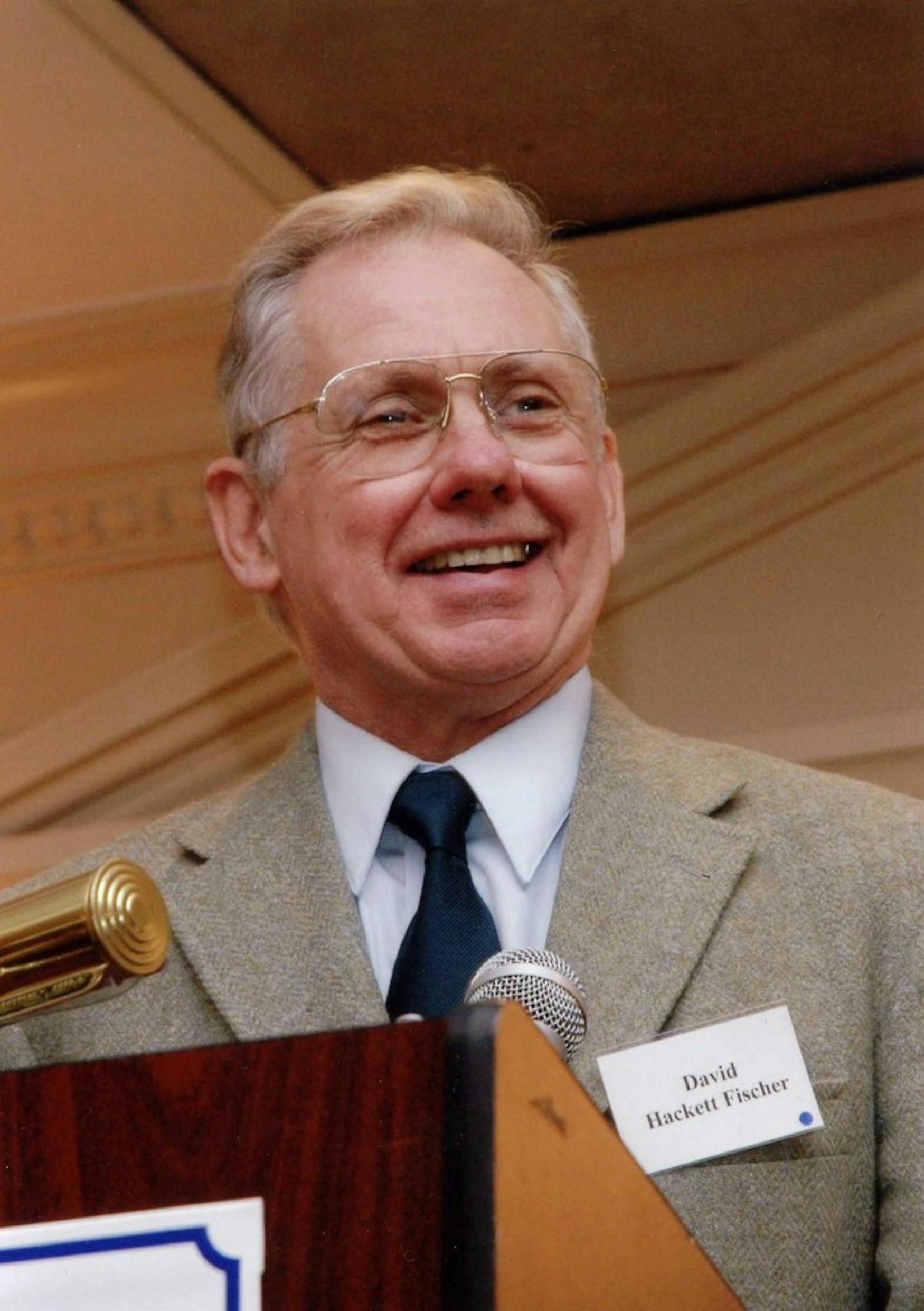From Pulitzer to Pritzker
Prof. David Hackett Fischer (HIST) will receive the Pritzker Award in Literature for Lifetime Achievement
To Prof. David Hackett Fischer (HIST), “history is not only about the past: it’s about memories of the past, it’s about experiences of the present, and it’s about anticipation of the future,” Fischer said in an interview with the Justice. In describing his childhood, Fischer recalls growing up in the midst of great historical events like the Great Depression, World War II and the Cold War. Yet to Fischer — and no doubt to many others — these events were also family events. “War was very much a part of my own experience,” Fischer said.
Professor Fischer has turned that experience into expertise — with over 15 publications in the historical field gaining him international acclaim. Most of his work has a military focus, though Fischer is also interested in looking at the history of inequality in the world. Fischer works in the History Department at Brandeis, and his academic success has earned him the title of University Professor.
On Nov. 7, Fischer will travel with his wife to Chicago where he will accept the Pritzker Award for his lifetime achievement in military writing. The Pritzker Military Museum and Library is a nonprofit organization dedicated to the understanding of military history. Each year, a panel of past winners honors a historian with the Pritzker Literature Award. Referring to the award, Fischer says, “It’s a great honor to be in [the company of past winners] and to work with the Pritzker family.”
This is not the first time Fischer has been recognized for his excellence in historical scholarship. His book, “Washington’s Crossing,” was awarded the Pulitzer Prize for Historical Writing in 2005 and was a National Book Award Finalist. Fischer has also received the Irving Kristol Award from the American Enterprise Institute and in 1990, he was honored with the Carnegie Prize as Massachusetts Professor of the Year.
Fischer began teaching at Brandeis in the fall of 1962, and “I enjoy it as much now as I ever did,” said Fischer. During that time, Fischer has worked to develop a series of three topic-focused courses meant to replace the typical survey course offerings. By doing so, Fischer hopes to increase enrollment and pique student interest in history.
In his teaching, Fischer likes to look at history from an atypical perspective. “Much of academic history centered for many decades…on an idea of history which made people into the objects of history rather than agents,” said Fischer. Instead, he looks at the specific choices made by people and how those choices have made a difference in the world.
Fischer believes that we are “in the early stages of a revolution in historical knowledge…as a consequence of the digital revolution.” Fischer’s work seems to be on the cusp of this revolution. In 2014, his book “Champlain’s Dream” was used as inspiration for a Canadian docudrama series, “Le Rêve de Champlain,” which focused on the life of French explorer Samuel de Champlain. The series is currently only available in French, but a production has already begun filming an English version with a planned release in approximately one year.
Earlier this fall, the Canadian series was awarded the prestigious Prix Gémeaux for best digital production. The award was “for the breadth of the approach to people of many ages and conditions,” Fischer explained.
The producers of the Canadian series not only made the story of Champlain accessible through television but also produced expanded ways for children and adults to interact with the story on their tablets and through other media devices.
The series website is filled with videos, interactive games and behind-the-scenes footage dedicated to learning about Champlain, and the app created for children features more mini-games, as well as a graphic novel.
“People get interested in history when they start thinking about it at an early age, … and we’re trying to use every tool that we can think of to reach people with history,” Fischer said.
Yet despite the progress made through digital media formats, a surprising trend emerged this past year: hardbound copies of Fischer’s books have outsold their digital versions. In his books, Fischer works to make use of mass media and visual materials to “use the printed page in new ways,” he said.
Fischer’s next book is a history of slavery. “It’s about the extraordinary things that slaves succeeded in doing in the face of the horrors that were done to them,” he explained.
“The work slaves accomplished in regard to boatbuilding, animal care, ironwork and the complex development of language and culture is an incredible testament to their strength.
“I’m writing a book to celebrate all of this … and to celebrate these extraordinary achievements,” said Fischer.
In addition to this book, Fischer is also working on a book about a favorite subject of his: Marquis de Lafayette, the Revolutionary war hero.
Fischer’s breadth of historical scholarship is certainly impressive, but it is his ability to use modern approaches to learning and think proactively that truly make him unique in his field. As we move into the future, Fischer hopes that students and historians alike will turn to history because “[the past] can yield an enormous expansion of knowledge that we urgently need in the world today,” he said.



Please note All comments are eligible for publication in The Justice.